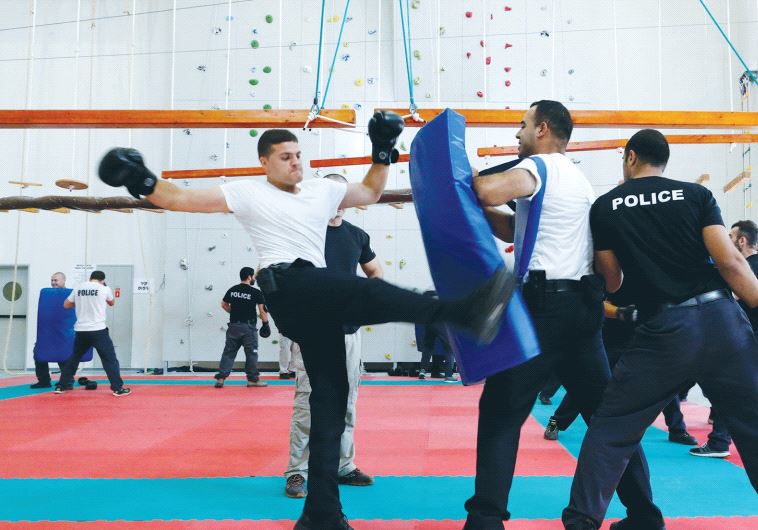Police integration
The low point in relations between Arab Israelis and the police came in October 2000 when clashes left 12 Arab Israelis dead and dozens injured.
 AN ARAB RECRUIT takes part in training at the Israel Police Academy in Beit Shemesh on August 24
AN ARAB RECRUIT takes part in training at the Israel Police Academy in Beit Shemesh on August 24